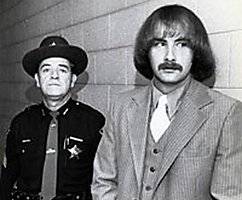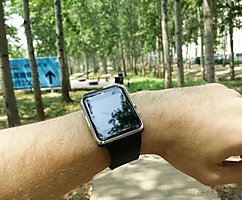Normal back pain or disc herniation?
 Bashny.Net
Bashny.Net
Ordinary back pain is usually a few hours or after a holiday, but the symptoms of a hernia can last for several days or even weeks.
Back pain is one of the most common health problems today, it is believed that from her at least once in their life suffer 8 out of 10 people.
There are several factors that can contribute to its appearance but also influence the intensity and duration.

A large portion of illnesses of this type are usually expressed slightly and disappears as spontaneously as it appears, usually after a rest or massage (training treatment) the patient places. But sometimes, the problem soon returns and back pain may acquire a chronic disease, which of course requires much more attention and appropriate care.
Most often people ignore the tension in the back, considering this as a variant of the norm and something temporary, but in fact, so it should not be done, because it can be a warning signal from the body that something is happening.
Disc herniation (or a herniated disc) just refers to those conditions that people often disregard just because you think her symptoms were the usual pain in the back. But here the situation worsens over time, but the pain remains and each time it is harder to treat.
It is therefore very important to be able to distinguish these diseases from each other and try to provide timely treatment.
What is disc herniation?
The vertebrae in our spine are connected by something like cushions (intervertebral discs), the function of which is to mitigate possible injury and prevent pinched nerves.
These drives facilitate the mobility of the vertebrae and, in fact, give our body the opportunity to move in principle to make a specific movement (stretch, bend, etc.).
However, with age, intervertebral discs lose their elasticity and are not as flexible as in my youth. They become weaker and weaker with certain movements can shift (herniation) or become damaged as a result of trauma or severe stress.
Then the person begins to experience severe pain, numbness, weakness, difficulty with movements. At this time, as a rule, and found the problem: diagnosed with a herniated disc.
Just back pain or disc herniation: what's the difference?
The main symptom of a herniated disc is the fact that back pain does not pass, and over time becomes more intense and noticeable.
There is another way to differentiate this disease, and when herniated, the pain increases when you cough, trying to bend or a long stay in a sitting position.
Conversely, back pain subsides when a person is lying with legs bent or walk instead of stand. Even when the hernia there is a feeling of weakness due to compression of nerve endings. When the conventional pain this does not happen.
If the problem is of a chronic nature, when the intervertebral disc is damaged, there is a threat of injury to the spinal cord, and the person may lose control over the process of urination and excretion.
Finally, the most obvious symptom of a herniated disc is that back pain remains for several days or even weeksat a time, as usual malaise is a few hours or after a short rest.
What to do in case of a herniated disc?
Of course, the first thing to doif you have symptoms of a herniated disc is to consult the doctor to evaluate the seriousness of the problem.
One of the solutions is surgery, but this does not guarantee getting rid of the pain 100%.
Therefore, many patients find alternative treatments to improve your condition and enjoy a higher quality of life.
These include:
In addition to the listed methods of treatment we shall also consider the following tips, they can help alleviate back pain:
Don't forget about the benefits of a 30-minute walk or swimming, and do it every day even when the back pain will pass.published
P. S. And remember, only by changing their consumption — together we change the world! ©
Join us in Facebook , Vkontakte, Odnoklassniki
Source: steptohealth.ru/obychnaya-bol-v-spine-ili-gryzha-mezhpozvonochnogo-diska/
Back pain is one of the most common health problems today, it is believed that from her at least once in their life suffer 8 out of 10 people.
There are several factors that can contribute to its appearance but also influence the intensity and duration.

A large portion of illnesses of this type are usually expressed slightly and disappears as spontaneously as it appears, usually after a rest or massage (training treatment) the patient places. But sometimes, the problem soon returns and back pain may acquire a chronic disease, which of course requires much more attention and appropriate care.
Most often people ignore the tension in the back, considering this as a variant of the norm and something temporary, but in fact, so it should not be done, because it can be a warning signal from the body that something is happening.
Disc herniation (or a herniated disc) just refers to those conditions that people often disregard just because you think her symptoms were the usual pain in the back. But here the situation worsens over time, but the pain remains and each time it is harder to treat.
It is therefore very important to be able to distinguish these diseases from each other and try to provide timely treatment.
What is disc herniation?
The vertebrae in our spine are connected by something like cushions (intervertebral discs), the function of which is to mitigate possible injury and prevent pinched nerves.
These drives facilitate the mobility of the vertebrae and, in fact, give our body the opportunity to move in principle to make a specific movement (stretch, bend, etc.).
However, with age, intervertebral discs lose their elasticity and are not as flexible as in my youth. They become weaker and weaker with certain movements can shift (herniation) or become damaged as a result of trauma or severe stress.
Then the person begins to experience severe pain, numbness, weakness, difficulty with movements. At this time, as a rule, and found the problem: diagnosed with a herniated disc.
Just back pain or disc herniation: what's the difference?
The main symptom of a herniated disc is the fact that back pain does not pass, and over time becomes more intense and noticeable.
There is another way to differentiate this disease, and when herniated, the pain increases when you cough, trying to bend or a long stay in a sitting position.
Conversely, back pain subsides when a person is lying with legs bent or walk instead of stand. Even when the hernia there is a feeling of weakness due to compression of nerve endings. When the conventional pain this does not happen.
If the problem is of a chronic nature, when the intervertebral disc is damaged, there is a threat of injury to the spinal cord, and the person may lose control over the process of urination and excretion.
Finally, the most obvious symptom of a herniated disc is that back pain remains for several days or even weeksat a time, as usual malaise is a few hours or after a short rest.
What to do in case of a herniated disc?
Of course, the first thing to doif you have symptoms of a herniated disc is to consult the doctor to evaluate the seriousness of the problem.
One of the solutions is surgery, but this does not guarantee getting rid of the pain 100%.
Therefore, many patients find alternative treatments to improve your condition and enjoy a higher quality of life.
These include:
- Thermotherapy
- Electrotherapy
- Collars, cuffs, and collars
- Shapewear
- Lumbar sprain
- Massages
- Hydrotherapy
- Natural analgesics
In addition to the listed methods of treatment we shall also consider the following tips, they can help alleviate back pain:
- Try to sleep on the right (orthopedic) mattress.
- Try to sleep in the fetal position with a pillow between your legs to avoid rotational movement of the hips.
- Avoid "lying on stomach", when you're asleep (face down).
- Be careful when you get up, do not make sudden movements.
- Relax, but not too much, since smooth movement is very important for recovery.
- Try to avoid heavy loads (do not lift heavy objects).
Don't forget about the benefits of a 30-minute walk or swimming, and do it every day even when the back pain will pass.published
P. S. And remember, only by changing their consumption — together we change the world! ©
Join us in Facebook , Vkontakte, Odnoklassniki
Source: steptohealth.ru/obychnaya-bol-v-spine-ili-gryzha-mezhpozvonochnogo-diska/
Tags
See also
How to get rid of back pain using a tennis ball. Colossal relief!
Back pain and bowels
Back pain and bowels: what's the connection?
Simple breathing exercises to relieve back pain
You will need only 60 seconds to forget about the pain in the back!
4 magic points to relieve back pain
The simple exercise under the most severe back pain
400-pound shoes has saved the Chinese from back pain
5 Stunning exercises Paul Bragg from back pain
Yoga at home: myth or reality? It turns out that everything that you need - this desire!
















